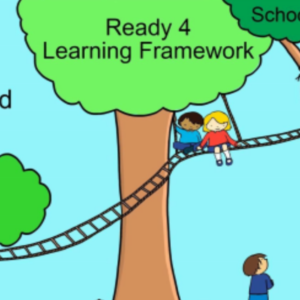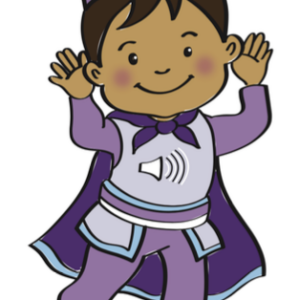Teacher Aide Professional Development
$368.00 incl. GST
(Price is for each workshop)
There are three delivery options for this professional development:
- Face to face – 2 x 3 hours (12-3pm) – across the country
- Zoom – 3 x 2 hours (12.30-2.30pm)
- Online self-paced with 2 x 1 hour Zoom sessions
There are 5 comprehensive workshops to choose from:
- Our Mahi – Professional Practice
- Our Ākonga – Inclusive Practice
- Our Mahi Tahi – Supporting Ākonga in Play-based Environments
- Supporting Literacy Development
- Know Your Learner
Contact [email protected] for more information and to register
Our Mahi – Professional Practice:
This module introduces TA’s to their professional responsibilities and their role in an educational support and care context. It provides Teacher Aides with the knowledge and skills to better understand the teachers, whanau and tamariki they support.
This course is hands-on and provides lots of practical strategies to support you in your role of Teacher Aide.
Workshop Focus:
- Professional skills – class teacher role, my role and responsibilities
- Relationships – know your learner and working with your teacher
- Legal and ethical obligations – what is confidentiality, advocacy and safety and how to implement school policies, procedures and guidelines
- Learning theories and child development
- Effective Teacher Aide practice
- Implementing Notice, Recognise and Respond
Our Ākonga – Inclusive Practice:
This module introduces the principles of inclusive practice relevant for diverse learners and prepares them for supporting ākonga in an educational context.
Teacher aides examine their attitudes and assumptions about disability and diversity and how they impact on ākonga and their ability to learn.
They will explore how to recognise barriers and identify ākonga strengths and use this information to support learning.
Focus of workshops/modules:
- Inclusive practice – supporting children’s physical and personal care and communication and how teacher aides are a valuable resource providing this.
- Supporting students who require a high level of physical care and or high communication needs
- Barriers to learning, what can these be and how can we remove or minimise them?
- Supporting students with an individual education plan
- Neurodiversity – what is this and what it can look like in a learner
- Relationships – know your learner, relationships, specialist intervention and teamwork
- meeting sensory needs, developing communication and social skills, encouraging flexible thinking
- Support in managing meltdowns, coping with change and working with students’ strengths.
- Effective practice and assessment is an ongoing process of noticing, recognising and responding to student learning
Our Mahi Tahi – Supporting Ākonga in Play-based Environments:
This module introduces TA’s to learning through play/play based learning and its benefits. We will explore the role teachers and teacher aides have in supporting child-led learning, and how they ensure the effective use of intentional teaching in play.
Workshop Focus:
- Why Play – what it fosters and develops – a look at the theory, urges, types of play and what they look like
- What is my role in play?
- Key Competencies – what are they, why are they important and how does play support these soft skills
- What are play invitations / provocations and how do they support students’ urges and interests as they play?
- Notice, recognise and respond – how this relates to assessment and how it enriches teaching and learning
- Supporting our children who don’t know “how” to play.
- The power of questioning, paraphrasing and scaffolding
Supporting Literacy Development:
This course provides knowledge and practical ideas on how to effectively support ākonga with literacy in the classroom. It doesn’t matter whether your school runs a balanced or structured literacy approach, or what scope and sequence they use, this course is about how to support the teacher and learner within any literacy programme and literacy development throughout the school day.
Workshop Focus:
-
- Foundation literacy skills – what are they and why are they important?
- Supporting ākonga with learning to read and struggling readers
- Supporting ākonga with learning to write and struggling writers
- Dyslexia – what is it and how to help
- Vocabulary development
- Developing oral language
- How to have purposeful interactions that provide students with time and the support to think, learn and communicate.
- Effective instructional strategies such as modelling, effective classroom talk, purposeful questioning and talk moves
- Know your learner
- Class, group and individual literacy support strategies
Know Your Learner:
The better you know your tamariki in their capacity as learners, including their interests, weaknesses, and strengths, the easier it will be to help them to be successful in their learning.
Workshop Focus:
- How to gather information on your ākonga
- Learner and learning focussed relationships
- How to involve ākonga in teaching, learning and assessment practices
- Effective assessment is an ongoing process of noticing, recognising and responding to student learning
- How to make learning visible to the student and those around them.
- How and what to observe in a variety of contexts such as Inquiry learning, cross-curricular learning, play-based learning etc
- What are, and how, to have learning conversations
- How to adapt teaching and learning programmes for individual students, groups of students, and the class as a whole
- How to pinpoint students’ strengths so that both teacher aid and students can build on them
- Identify students’ learning needs in a clear and constructive way so they can be addressed
- Understand that ākonga learn different things, in different ways, at different rates
- Tracking and monitoring learner progress
- Maintain class engagement and participation in learning through formative assessment
- How to support teachers with assessment
- Understand how information from assessment is used to identify next steps for learning and to create a rich picture of each student’s progress over time.
- Teachers and teacher aides work together to gather and share information about their students.




